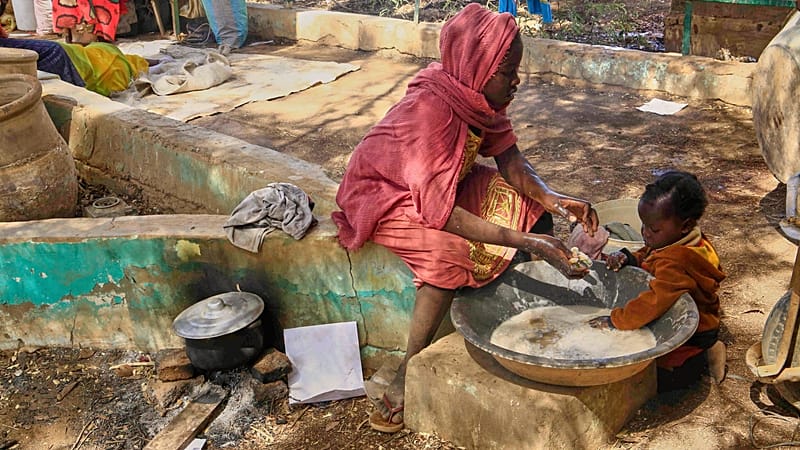Sudan: Growing concern about atrocities committed in Darfur capital

There is growing international concern as more reports emerge of atrocities committed against non-Arab ethnic groups in al-Fashir, the capital of Sudan’s Darfur region.
The city was captured by the paramilitary Rapid Support Forces (RSF) on Sunday after an 18-month siege marked by bombardments and famine.
It was the last of Darfur's five state capitals to fall to the paramilitary group, led by General Mohammad Hamdan Daglo, that has been at war with the army for more than two years.
Local rights groups and aid organisations said the RSF has detained over 1,000 civilians and killed dozens. Graphic videos on social media show mass arrests and gruesome killings as people attempt to flee the city on foot.
Over 25,000 people reportedly managed to escape al-Fashir in the past few days, travelling mostly to Tawila, a town around 60 kilometres west of the city that is already hosting around 650,000 displaced people.
Senior UN refugee agency (UNHCR) official in Sudan, Jacqueline Wilma Parlevliet, said new arrivals have recounted stories of widespread ethnically and politically motivated killings.
She said this included reports of people with disabilities being executed because they were unable to flee, and others being shot as they tried to escape.
The UN Office for the Coordination of Humanitarian Affairs said it has received credible reports of numerous atrocities, including summary executions, and sexual violence, particularly against women and girls.
The UN and other human rights organisations say people in al-Fashir are at risk of further large-scale ethnically motivated violations, and are calling for humanitarian access to the city.
The army said it withdrew from the Darfur capital, hoping to save civilians from further violence after more than a year of RSF attacks.
Military chief Gen. Abdel-Fattah Burhan said the army retreated because of “the systemic destruction, and the systemic killing of civilians” by the RSF.
The European Union, Arab countries, the United Nations, aid agencies, and others have denounced what they called violations and brutality carried out by RSF fighters.
The Sudan Doctors Network, a medical group tracking the war, said RSF fighters abducted five medical workers, including four doctors, a pharmacist and a nurse from the city.
On Tuesday, the International Federation of Red Cross and Red Crescent Societies said five of its volunteers were killed in the city of Bara, in Kordofan state, while distributing food. Three others are missing.
Meanwhile the Sudanese government said on Tuesday it has expelled two top World Food Programme officials from the country, declaring them “persona non grata" without giving a reason.
The war started in April 2023 when simmering tensions between the Sudanese military and the RSF exploded into open fighting in the capital, Khartoum, and elsewhere in the country.
It is estimated by the UN that at least 40,000 people have been killed in the fighting, although the actual death toll is likely much higher.
Al-Fashir's takeover by the paramilitary group raises concerns of a possible split in a country already divided by two years of war.
Both the RSF and the Sudanese military are being investigated by the International Criminal Court for various alleged war crimes and crimes against humanity during this period.
The war has also created the world’s worst humanitarian crisis, with part of the country, including the al-Fashir area, plunged into famine. Over 14 million people have fled their homes.
Today

